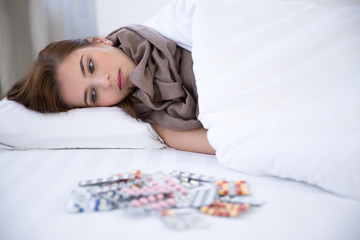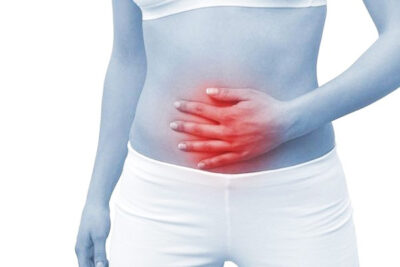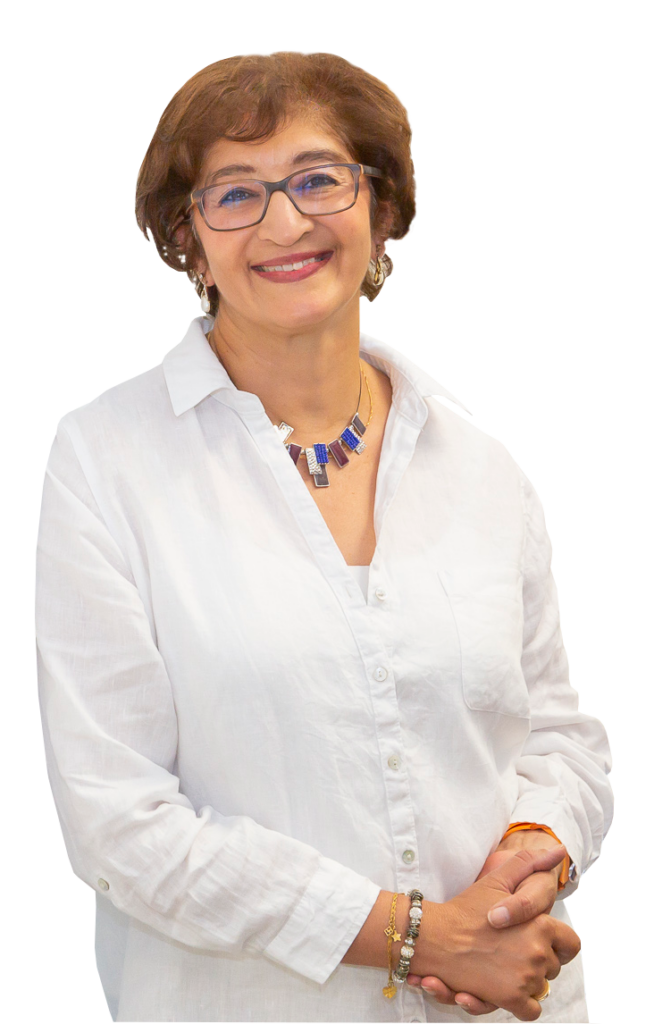
Ancient Ayurveda Recipes for Healthy Living
by Vanita Dahia What did our ancestors eat? One ancient

Tired of lying there restless or counting sheep?
Can’t get off to sleep?
Having trouble staying asleep?
A third of your life is spent sleeping. Good quality sleep is essential to survival, as important as food and water.
The dreaded sleep deprivation dilemma is all too familiar. Sleep issues have become a pervasive health problem, and research shows that lack of sleep affects everything from mental acuity to increased risk of chronic diseases.
According to the sleep health foundation in Australia(1),
Sleep is our most basic human need; it is essential to life; we need sleep to repair and restore many vital functions in the body.
We need sleep to clear brain waste, modulate immune cells, improve memory and attention, form new brain pathways and detoxify the body.
The brain and body kicks into repair activity remarkably while you sleep. All the body’s housekeeping happens whilst sleeping. The liver removes toxins of the brain and blood that have been bult up during the day.
Sleep disturbances, sleep apnoea, chronic insomnia affects a progressively growing population especially as we are living in urban congested environments and expose our senses to an ever-increasing dose of device mania.
Sleepiness and sleep problems are a major source of risk on our roads.
Driving while drowsy at least every month is reported by 29% of people, 20% have nodded off while driving and 5% have had an accident in the past year because they dozed off.
Sleep problems have a major effect on work performance.
In the past month 17% have missed work because they were sleepy and 17% have also fallen asleep on the job. In the past 3 months 29% of adults report making errors at work due to sleepiness or sleep problems.
A quarter of all adults (26%), both use the internet most or every night of the week just before bed and have frequent sleep difficulties or daytime impairments.
Similarly, 16% of all working adults do work just before bed and also have frequent sleep difficulties or daytime sleep-related symptoms.
There is no magic number for hours of sleep as it varies for each person and age.
An adult needs an average of 7 hours of sleep per night. Babies need 16 to 18 hours of sleep for growth and brain development. Teenagers need 9 to 10 hours of sleep especially during growth spurts.
After 60 years of age, night time sleep shortens and can often be interrupted by multiple awakenings but may need a day-time nap.
Check your sleep issue with a Sleep Questionnaire
Insomnia can be classified as:
Primary which not attributable to a medical, psychiatric or environmental cause but caused by poor sleep hygiene, stress and substance abuse.
Secondary usually associated with comorbidities such as restless leg syndrome, obstructive sleep apnoea, hormonal changes or neurological imbalances such as anxiety or depression.
Acute associated with a trauma, major stress, grief, consumption of caffeine, alcohol, nicotine; changing or starting certain medications such as steroids, beta-blockers and antidepressants.
We go through 2 stages of sleep: rapid eye movement (REM) sleep and non-REM sleep, to-ing and fro-ing from one stage to the next with deeper REM periods occurring toward morning.
The first stage is a non-REM sleep changing from awake to sleep. During this stage, your muscles relax and heartbeat, breathing, and eye movements slows.
The second stage is a period of light sleep before you enter deeper sleep when body temperature drops and eye movements stop.
The third stage is a deep sleep where is may be more difficult to awaken. The brain waves become slower.
You will flip between stage 2 and stage 3 throughout the night. Mixed frequency brain wave activity becomes closer to that seen in wakefulness. Your breathing becomes faster and irregular, and your heart rate and blood pressure increase to near waking levels. Most of your dreaming occurs during REM sleep.
The body’s biological clock or diurnal patterns of sleep lines up with the production of Melatonin over a 24 hours period. Melatonin, a hormone from the pineal gland in the brain is responsible for onset of sleep, the production of which fluctuates through the day and night, peaking at around midnight when sleep is induced.
Circadian rhythms direct synthesis and release of hormones, body temperature and metabolism. These rhythms control timing of sleep and trigger the brain to wake after a sleep.
Night shift workers have a disruption in the internal versus actual time clock and often have trouble falling asleep when they go to bed, and also have trouble staying awake at work because their natural circadian rhythm and sleep-wake cycle is disrupted. Melatonin is the primary hormone is regulating the circadian cycles.
Sleep-wake homeostasis regulates sleep intensity tracking your need for sleep. This sleep drive gets stronger after you’ve been awake for a long time.
Your activity, food, stimulants, medication, medical conditions and stress can affect your sleep-wake cycle. Exposure to light is the biggie! You will awaken when your curtains are opened. The eyes are therefore great yardsticks for measure of sleep or wakening.
Everyone dreams but you may not necessarily remember your dreams. Can’t remember dreams? You may be Vit B6 deficient. You may dream for approximately 2 hours per night to help process emotions.
You may have nightmares if you are under stress or watched a horror movie during the day. Dreams are not time restricted. You may be dreaming of a chain of events spanning days but experienced it in 1 hour.
Melatonin is your primary sleep hormone. It can be measured in sa saliva or urine sample.
Serotonin makes melatonin. If melatonin is deficient, then there is a strong likelihood of Serotonin being low. Low Serotonin is associated with feeling low, depression, insulin sensitivity and sadness.
GABA, another inhibitory neurotransmitter alleviates anxiety, worry, ruminations. GABA indiced a deeper sleep and maintains sleep during the night.
GABA and Serotonin can be measured in a urine sample.
Specific Amino acids are implicated in improving sleep. Amino acids can be measured in a urine or blood sample.
See your testing options in Testing for Insomnia, Sleep Disturbances
Measuring sleep hormones and underlying drivers of sleep disturbances introduces predictive markers and assessment needs to provides nutritional and phytotherapeutic strategies to recover and restore healthy sleep patterns.
Improve your sleep hygiene
It’s common practice to use smartphones, fit bits and other wearable devices to monitor and analyse sleep data. Smart technology can record sounds, movement during sleep, monitor heartbeat, respirations, snoring, oxygen content and journal sleep hours.
Other apps and devices make white noise, produce light that stimulates melatonin production, and use gentle vibrations to help you sleep and wake.
Polysomnography tests are the most accurate because they track a person’s brain waves, heart rate, breathing, blood oxygen levels, and body and eye movements during sleep through electrodes attached to the skin and scalp.
Don’t you feel relaxed with soothing meditation sounds or feel wired and excited with metallic beats?
Researchers have found that Pink noise has potential as a sleep aid, reduces brain waves and improves sleep.
Nature is full of pink noise like rustling leaves, ebb and flow of oceans, the wind, pitter patter of the rain, or a heartbeat.
White noise, on the other hand includes all audible frequencies like static TV or radio, a whirring fan or the noise of a motor.
Brown noise, also called red noise, has higher energy at lower frequencies like thunder or a waterfall.
Black noise describes a lack of noise perhaps in a blissful meditative state.
The brain uses various frequencies to think, take action or sleep. When the brain is in a delta state, the electrical activity takes the brain into a Slow Wave Sleep state (SWS), which is the phase of sleep that allows the brain to consolidate memory, recuperate, heal and regenerate energy.
Acoustically enhanced delta binaural beats generate a gentle rhythmic pulse that acts like training wheels for sleep according to Kelly Howell, a producer of brain sync sounds. Electroencephalograms (EEGs), which measure brainwaves, show that brainwaves synchronize to binaural beats.
How to Support Recovery and Wellness in Sleep Disorders Caused by Urban Sprawl
Parks, woodlands, trees and other nearby green spaces might actually help us to nod off. Green space can counteract the effect and impact of noise, heat and air pollution. Just being in nature provides a medium of psychological restoration and stress reduction. Thousands of city trees have been lost to development, when we need them more than ever.
It seems the benefits are greatest if there’s more tree canopy and more biodiversity (such as a richer variety of birdlife).
9 out of 10 people worldwide inhale polluted air. Exposure to polluted air accounts for 7 million deaths annually (WHO, 2019).
Vitamin D is a vitamin and pro-hormone needed to assist in calcium absorption and assimilation into bones. Vitamin D not only ensures bone density but regulates the expression of hundreds of genes. Vit D deficiency is linked to depression, metabolic syndrome, PMS, Irritable bowel syndrome and sleep disturbances.
In a recent study, sleep quality was assessed in participants with sleep disorders. The authors reported that vitamin D improved sleep quality, reduced sleep latency, raised sleep duration and improved subjective sleep quality.
Vit D potentiates the expression of neuronal genes that convert tryptophan to Serotonin, your happy neurotransmitter to Melatonin, your sleep hormones.
One amino acid worth considering is Glycine for sleep. Glycine is an inhibitory amino acid which is needed to production of GABA, an anti-anxiety neurotransmitter which has a calming effect of the brain.
Glycine is a sweet to taste amino acid serving as building block to production of collagen, heme (the red stuff in red blood cells), DNA and RNA synthesis and glutathione formation.
In a human clinical trial, 3g of glycine was taken before bedtime. This study showed that glycine:
These effects were observed with no side effects unlike the those seen with sedatives and hypnotic drugs.
Complementary medicines are frequently used because they may be resistant to the pharmaceutical prescriptions.
Prescription medicines come with many side effects. Herbal and other natural sleep aids do not have these same drawbacks.
Pharmaceutical medications for insomnia include antihistamines,
benzodiazepines and tricyclic antidepressants. These medications may
be associated with side-effects, and come with risks of habituation,
tolerance, withdrawal symptoms, and overdose.
Historical use of fermented beverages, Laudanum (opium/alcohol), Chloral hydrate and Barbiturates are now phased out due to irs addictive properties and been replaced with modern day precription medication.
Magnesium and Sleep
Magnesium is an essential mineral utilised by the body in over 300
biochemical reactions including modulating stress through the HPA. Magnesium is implicated in the management of stress and anxiety as it plays a role in synthesis, metabolism and utilisation as an essential cofactor in all neurotransmitters.
Magnesium, therefore assists in the relief of stress and depression , both of which are involved in the aetiology of insomnia. Magnesium Glycinate most effective for sleep.
Studies have demonstrated that a deficiency in magnesium can lead to both depressive and anxiety states. Magnesium works at reducing neuronal hyperexcitability by increasing GABAergic availability and decreasing excitatory glutamate release.
Magnesium has been shown to decrease serum cortisol and increase sleep time. An intake of 500 mg/d of elemental magnesium over 8 weeks increased sleep time and sleep efficiency, and improved sleep onset.
Carotenoids such as Lutein and zeaxanthin reduces the effects of screen time, improve sleep onset and maintenance
Calcium works with Tryptophan to produce Melatonin. Chronic insomnia is also one of the initial symptoms of Magnesium deficiency
L-tryptophan, 5-Hydroxytryptophan (5HTP) is the direct precursor of serotonin and melatonin, and may assist in the improvement of sleep quality and sleep duration of primary insomnia
S-Adenosyl Methionine (SAMe) can assist in the relief of depression.
Gamma-Aminobutyric Acid (GABA) regulates neuronal excitability. An efficient efflux pump for excitatory Glutamate and Aspartate altering pain perception.
Tyrosine and NADH contribute to the production of dopamine and noradrenaline, neurotransmitters involved in controlling sleep and may modulate gene expression in circadian rhythm
Herbs that promote the effect of GABA in inducing a deep sleep include:
California Poppy has traditionally been used for its sedating effects, contributing to a calm and restful sleep. This herb produces its sedative effect by binding GABA receptors and activate them in the brain.
Lavender Oil also acts via GABA receptors and provides a sense of calm by moderating the production of stress hormones such as Cortisol and adrenaline. Lavender alters the excitatory effect of glutamate and noradreanaline.
Passion flower has an anxiolytic effect. Passionflower exerts anxiolytic and sleep-promoting effects via modulation of GABA/benzodiazepine and opioid receptors.
Zizyphus’ calming effects come from its ability to increase the effect of GABA and has a benefit in managing hoy flushes associated with menopause and insomnia.
Hops and Valerian have long been staples in sleep disorders.
In a double-blind, randomised, controlled trial of 91 subjects presenting with primary insomnia, 10mg of zolpidem was taken at night for 2 weeks and some were given a combination of Valerian, Hops and passionflower herbs.
The subjects were assessed for sleep time, sleep latency and number of wakings per night.
Results of the study showed that there were significant improvements in sleep latency, total sleep time, number of nightly awakenings and
insomnia severity index scores in both groups.
The herbal combination was found to be a safe and effective alternative to zolpidem for primary insomnia.
Withania (Withania somnifera) regulates cortisol, improves sleep quality, calming adaptogen useful with elevated night time cortisol. 60 healthy individuals receiving either 250 mg/d and 600mg/d of withania over eight weeks – improvement in stress scores, reductions in morning cortisol and enhanced sleep quality.
Valerian has traditionally been used as a calmative, sedative and sleep aid, and is widely used to treat sleep disorders and relieve nervousness.
Valerian inhibits the enzymatic breakdown of GABA and promotes the release of GABA.
In a systematic review of 16, randomised, placebo-controlled trials (RCT), authors concluded that valerian may improve sleep quality without producing side-effects.
The ideal sleep solution must include optimisation of:

by Vanita Dahia What did our ancestors eat? One ancient

Have you ever heard of anyone preventing their memory decline

How to Stop Indigestion and Acid Reflux by Vanita Dahia

Copyright © Vanita Dahia 2026. All rights reserved.